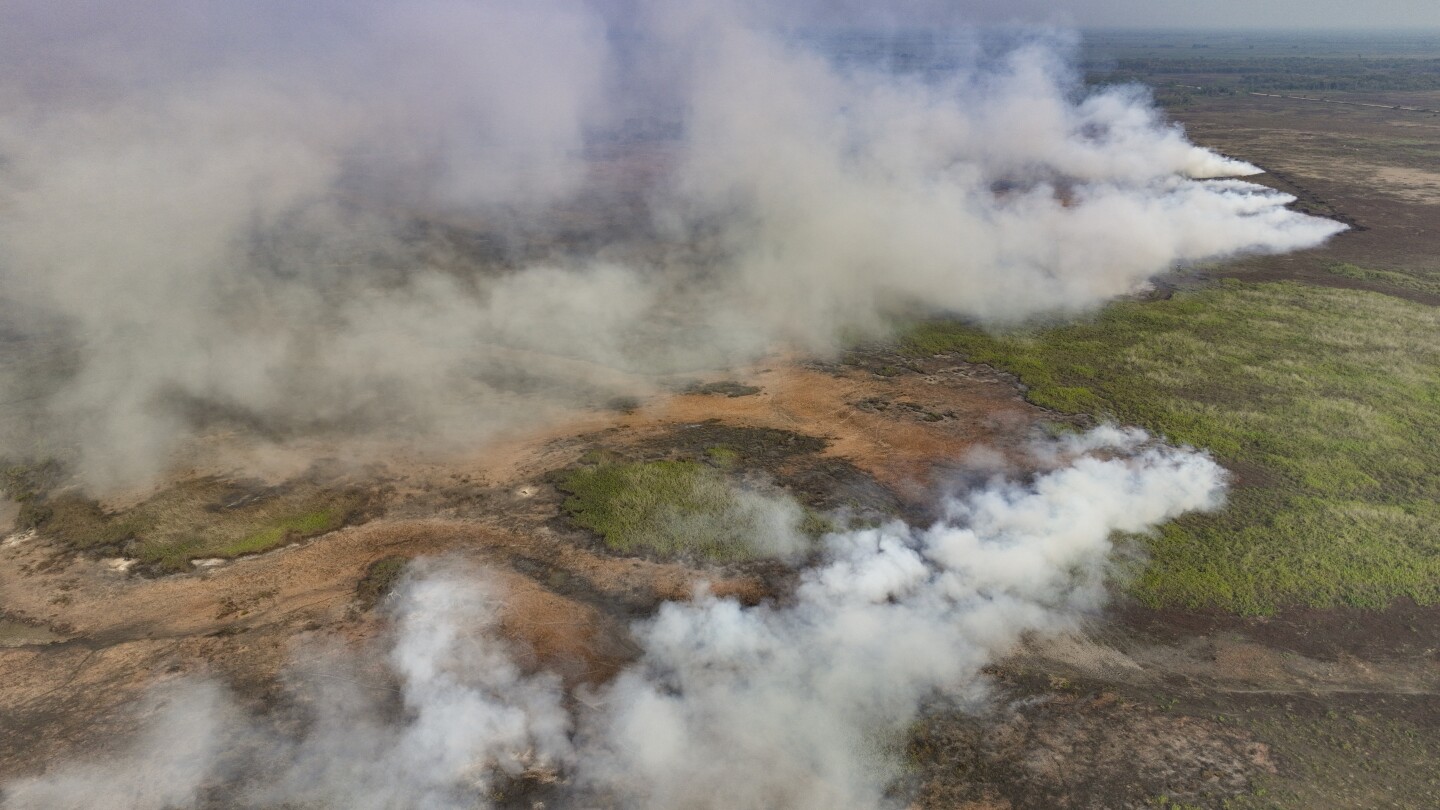POCONE, BRAZIL (AP) — Firefighters in Brazil’s Pantanal wetlands earlier this month celebrated the end of the fire season on Facebook, saying in a Nov. 7 post that “it is a relief for everyone who lives in the region.”
They spoke too soon.
Meanwhile, a couple hundred km down in the south of the country it has been raining non-stop for like two months now, with some small towns in valleys having been completely destroyed by floods. The climate here is all wrong, this is not normal.
This is the best summary I could come up with:
In the first two weeks of November, fires fueled by unusually dry and hot weather destroyed nearly 770,000 hectares (1.9 million acres) of the world’s largest tropical wetlands, preliminary figures from the Federal University of Rio de Janeiro show.
Firefighters, troops and volunteers are working night and day to try and stop the fires, which are threatening not only the region’s rich fauna and flora but also houses and touristic guesthouses.
Libonati said the heat wave that swept through much of Brazil this week, combined with the El Niño phenomenon led to higher temperatures and drier weather conditions, both favorable to fires.
Angelo Rabelo, president of a local environmental group that oversees a protected area of about 300,000 hectares (1,160 square miles), runs his own fire brigade, currently comprised of eight members, working alongside a small team of national forest firefighters.
Thick smoke emanating from the fires reduced visibility this week, with the Federal Highway Police closing the BR-262 at one point, and reports of a small private plane crashing, injuring four.
Enderson Barreto, a 25-year-old veterinarian in Porto Jofre, a small municipality close to the Meeting of the Waters park, said his and other colleagues’ pleas for help weeks ago were left unanswered, until it was too late.
The original article contains 995 words, the summary contains 209 words. Saved 79%. I’m a bot and I’m open source!



